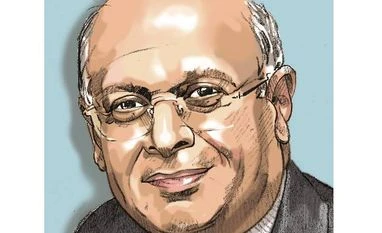Infosys founder N R Narayana Murthy had suggested to the board appointing Subrahmanyam co-chair even as two former directors V Balakrishnan and T V Mohandas Pai have asked the present chairman, R Seshasayee, to quit the company over alleged corporate governance lapses, triggering a crisis in the company.
According to Infosys’ retirement policy, an executive director or a managing director is supposed to retire at 60. The policy says a director’s term may be extended by the nomination and remuneration committee (NRC), led by independent director Jeffrey Lehman, with the shareholders’ approval backed by a special resolution. The notice must justify the extension, the rule says. In a special resolution, 75 per cent of the votes have to be in favour of the resolution.
However, the Infosys board was told that it should suggest Subrahmanyam’s appointment instead of the founders raising the issue.
Subrahmanyam had retired from the board of Infosys in 2011, when he turned 65, in accordance with the retirement policy then.
After the suggestion to appoint Subrahmanyam as co-chair was made, the board had discussed the issue but did not act on it.
Meanwhile, the founders raised issues of corporate governance in the company. “We want to engage with all shareholders of the company including the founders and the board wants every appointment to meet the legal and corporate governance norms,” said a source close to the board.
“Infosys is a US-listed company and we do not want to do anything which breaches the law by talking to only one set of investors. Therefore, the board decided to hire law firm Cyril Amarchand Mangaldas to talk to the founders so that everything is above board. The board is with chief executive officer Vishal Sikka and Chairman R Seshasayee on all these issues.”
Murthy had also objected to the appointment of Punita Kumar Sinha, wife of Union Minister Jayant Sinha, as independent director, saying that hiring relatives of people in politics contravened the company’s policy. However, the source countered this argument by saying that there was a precedent here because former independent director Carol Browner’s husband was a member of the US Congress and Browner herself had close ties with the White House. She resigned as independent director on November 23, 2015, and Sinha was appointed in January 2016 in her place.
The source also said if a woman was qualified for a job, it did not make sense to keep her out on extraneous considerations. Sinha was senior managing director of Blackstone and chief investment officer of Blackstone Asia Advisors. Before that, she was also managing director and senior portfolio manager at Oppenheimer Asset Management and CIBC World Markets. “The board is happy with her inputs during meetings,” said the source.
Oppenheimer has been a shareholder in Infosys for decades, and last week its portfolio manager Justin Leverenz wrote a letter to the Infosys board, appreciating Sikka’s performance
as CEO.
Meanwhile, the Infosys board and senior leaders are expected to meet in Mysuru, and the corporate governance issues raised by Murthy are likely to come up for discussion. On top of the agenda would be the compensation paid to former chief financial officer Rajiv Bansal, which, according to a source on the board, was vetted by two independent entities including law firm Cyril Amarchand Mangaldas. Murthy has called the compensation paid to Bansal “hush money”, leading to a crisis of reputation for the management and the board.
Sikka will meet institutional investors this week in Mumbai to give an update on the operations of the company. Foreign investors (including American depository receipts) own 55.8 per cent in the company while local institutional investors and mutual funds account for 18.7 per cent. The founders have a 12.75 per cent stake.
To read the full story, Subscribe Now at just Rs 249 a month
Already a subscriber? Log in
Subscribe To BS Premium
₹249
Renews automatically
₹1699₹1999
Opt for auto renewal and save Rs. 300 Renews automatically
₹1999
What you get on BS Premium?
-
Unlock 30+ premium stories daily hand-picked by our editors, across devices on browser and app.
-
Pick your 5 favourite companies, get a daily email with all news updates on them.
Full access to our intuitive epaper - clip, save, share articles from any device; newspaper archives from 2006.
Preferential invites to Business Standard events.
Curated newsletters on markets, personal finance, policy & politics, start-ups, technology, and more.
Need More Information - write to us at assist@bsmail.in
)